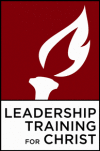Judging Information
Requirements for individual congregations to provide judges
1. Each congregation may be required to submit a certain number of judges, scorers, or facilitators for a given event based on the number of entrants they have in an event, and the size of the congregation. Some of these requirements are listed in the manual, and some will be sent to you later based on the entries of your young people. Please do not treat the need for judges as optional. Our young people can only participate if these requirements for judges have been met.
2. Any request (whether by letter, fax, e-mail or phone) by an event coordinator for assistance in locating judges should be answered promptly, in the best interests of your students and LTC. Please answer in a timely manner such requests for judges to ensure that your students will be eligible to participate in that specific event.
3. Judges should attend all scheduled judges meetings during the convention, and be at the correct location, ready to judge, 15 minutes before their scheduled judging time.
4. Judges should be intimately familiar with the rules and judging criteria of each event they judge.
5. Judges must not double-schedule time. If they commit to judge an event, they will stay and complete their judging assignment until every child has received a full and fair evaluation. Anything less will not be considered a fulfillment of the requirement to provide a judge, and LTC can withhold results for a congregation in that event.
6. Those persons with the greatest experience in a given event, who have the ability to encourage and not just critique, are the best candidates for judging positions. Our young people deserve better than just warm bodies.
How to judge challenge events
1. Essentially, the local congregation’s event coach or congregational coordinator prejudges all challenge events. The event coordinator or others they may designate will review the submitted documentation for these events.
2. Those who judge the work at the local level will make every effort to: (a) keep the standards high, (b) make certain that the student actually performed the work listed, and (c) make certain that this work was done with only a reasonable amount of adult supervision.
3. Remember that these are supposed to be “challenges” and not “gimmes.”
4. Make certain that the documentation is legible and understandable.
5. In the event that the event coordinator has any questions about an individual’s documentation, they will call and discuss the situation with the congregational coordinator. All decisions of the event coordinator will be final.

How to judge convention events
Every event at LTC requires adults to make judgments of how a young person’s work meets the standards outlined in this book. For all of those who judge, the following ideas must be central to their attitude and comments as judges.
1. The need for every young person to receive positive encouragement to perform to high standards.
2. In order for our youth to improve from one year to the next, judges must give them clear, understandable and positive feedback. To merely mark a category, “OK,” or “needs improvement” gives a young person no clear direction on how to improve. Judges must be willing to take the time and effort to give this positive feedback.
3. Judges at LTC should not focus on the resources used (elaborate and expensive costumes, for example), but rather on how the youth made use of the resources that they had available to them.
4. The uniqueness of each individual must be taken into account; the question is not, “Is this how I would have done it?” but, “Did this young person meet the standard, or not?”
5. The judge must try to gauge the amount of effort that the youth has put into the work and encourage those who are obviously working very hard to do their best.
6. A true reckoning of the age-adjusted abilities of each youth must be found. Obviously there would be different standards of performance (in song leading, for example) for a beginning fourth grader, a seventh grader struggling with a changing voice, and a very experienced senior.
7. Judges should not use any judging standard that is not explicitly spelled out in the event rules. Having “understood” or “hidden” requirements to succeed in an event is unethical and discouraging.
8. Judges should not be biased in their work, and should remove themselves from judging any team or individual whom they cannot judge without such bias (positive or negative).
